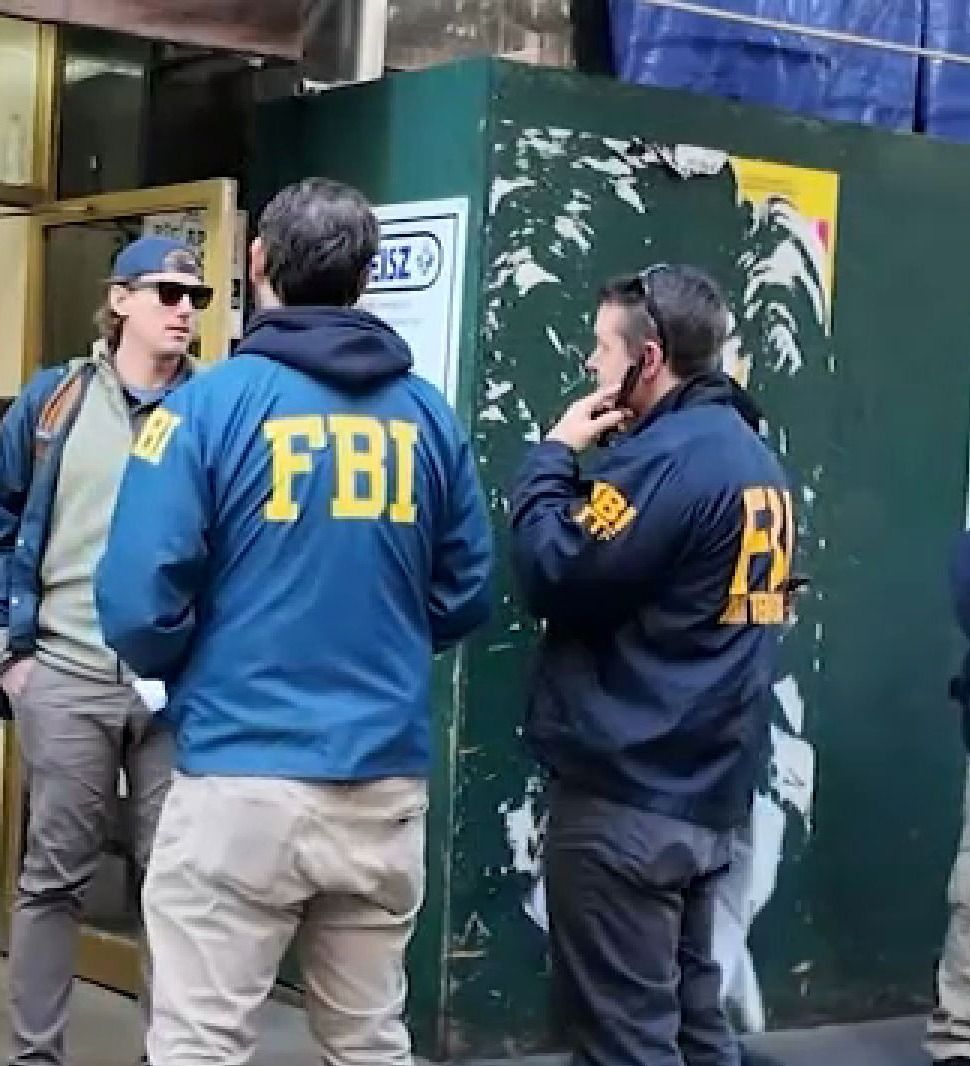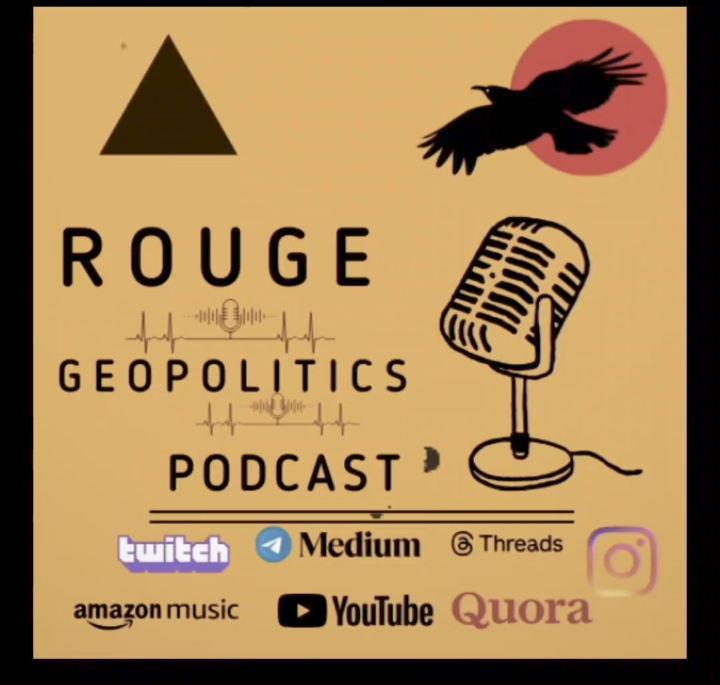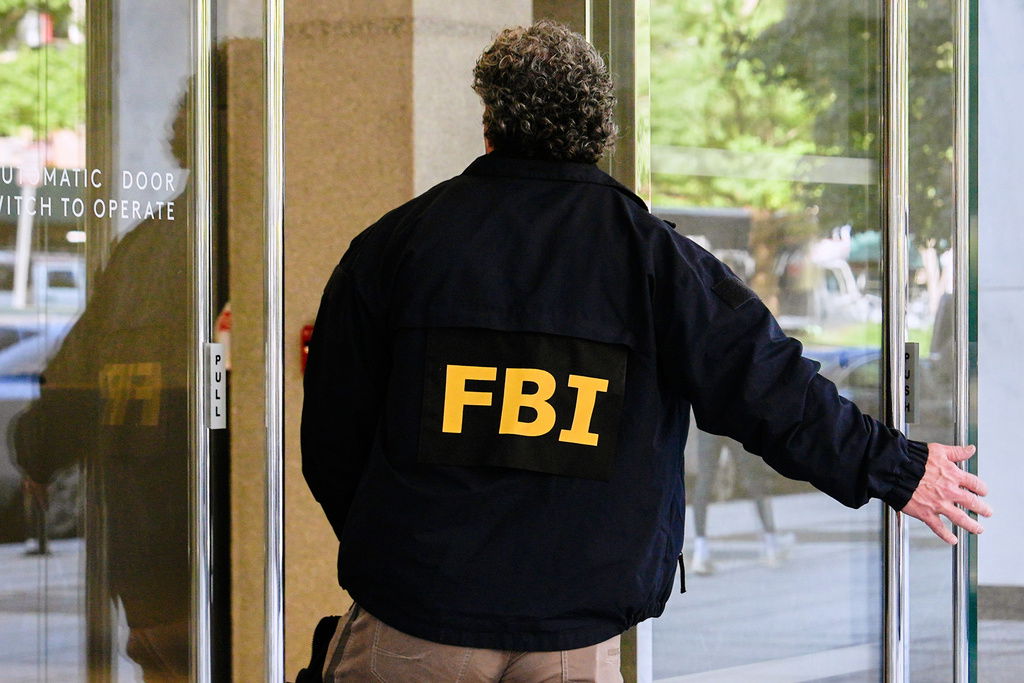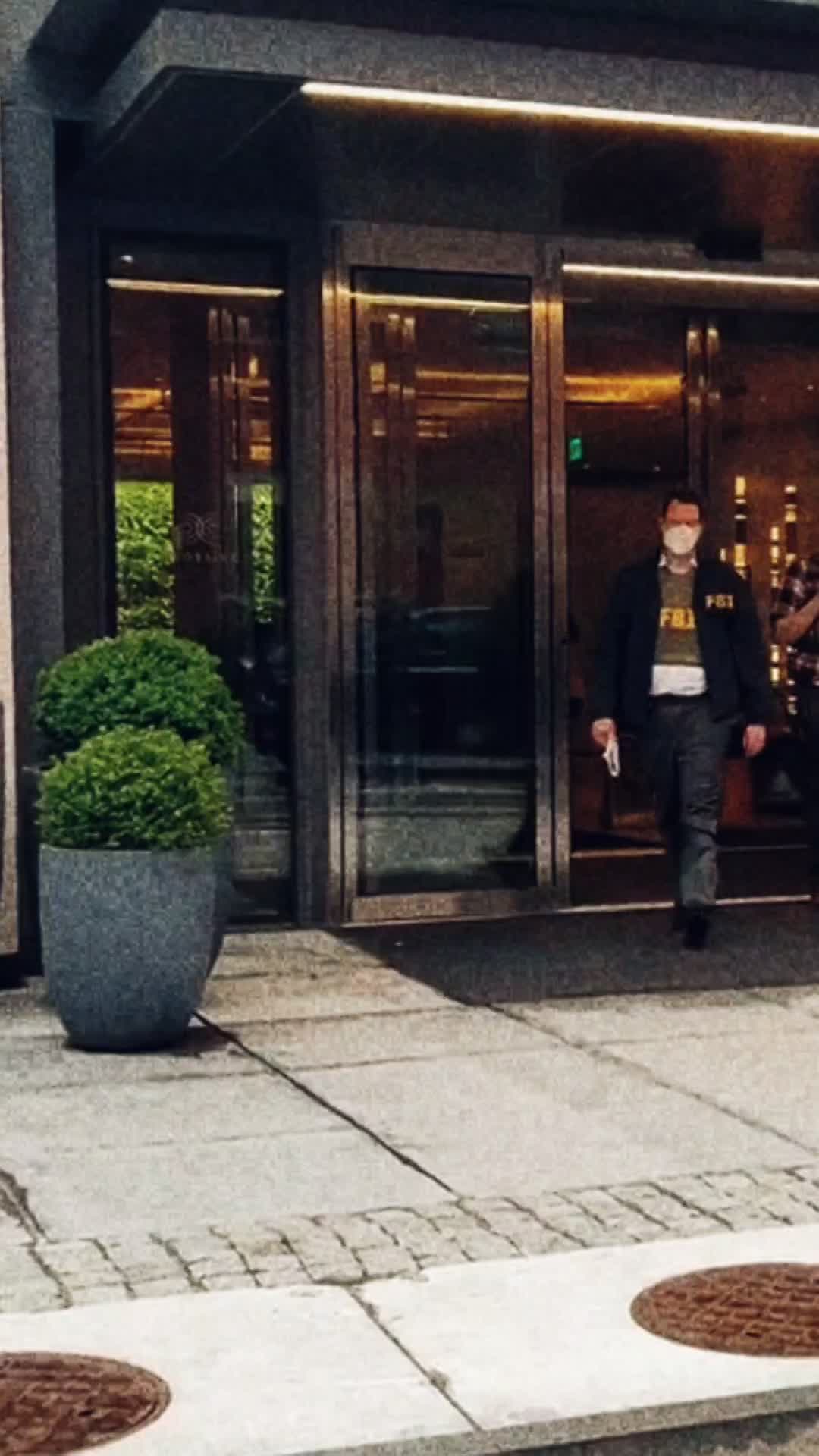The Strangest Angel's Prophecy Unfolds: FBI Raids Cory Spears' Penthouse Amidst Kash Patel Showdown – A Free Speech Battle Ignites!

Atlanta, Georgia – In a breathtaking escalation of an online feud that many dismissed as mere performance art, the digital world collided jarringly with stark reality today as FBI agents descended upon the Atlanta, Georgia penthouse of Cory Spears, famously known as "The Strangest Angel."
The electrifying raid, reportedly carried out at the explicit behest of political figure Kash Patel – whom Spears acerbically refers to as "Kasheeesh Patel" – marks a chilling new chapter in what is rapidly becoming a high-stakes, real-life battle for freedom of speech.

The dramatic scene unfolded like a cinematic thriller, but the raw footage captured by Spears himself left no doubt as to its terrifying authenticity. In the chaotic video, Spears' unmistakable voice cuts through the tension, defiant and unyielding, "Tell Kasheeesh Patel this warrant ain't gonna work and BOO!" His audacious challenge didn't stop there.
Amidst the flurry of agents securing his residence, Spears, ever the provocateur, audaciously accused one agent of "having too tight pants" and another, in a breathtaking moment of accusation, of "stealing from his home." This was not merely a raid; it was a defiant performance, even under duress, by a man who has long positioned himself as a voice against perceived systemic overreach.
For months, the unfolding drama between Spears and Patel has captivated and perplexed a growing international audience.
What began as a series of impassioned soliloquies and pointed accusations from Spears, often delivered with a unique blend of intellectual fervor and street-level swagger, was largely regarded as an idiosyncratic online spectacle. Yet, Spears himself insisted it was anything but trivial, embarking on a quixotic quest to alert figures like NBA Commissioner Adam Silver to what he claimed was an impending threat, only to find his warnings fall on deaf ears. Now, with the flashing lights of federal agents illuminating his private sanctuary, the gravity of Spears' pronouncements has been tragically, undeniably validated.
The Genesis of a Prophecy: "Rouge Geopolitics" and the Unseen Hand

The most unsettling aspect of today’s events lies in their eerie, pre-ordained quality. Back in April, on the "Rouge Geopolitics Podcast" – a platform that has emerged as a crucial nexus for alternative narratives and expert analysis – Cory Spears delivered a chillingly precise prophecy. With an almost unsettling clarity, he outlined the exact scenario that played out today, predicting that Kash Patel would leverage his influence to target him, using the apparatus of the state.
At the time, such a prediction seemed outlandish, a flourish of dramatic hyperbole. Today, that very podcast and indeed, Spears himself, stand accused of being targeted precisely for exercising the fundamental right to freedom of speech. Spears, "The Strangest Angel," is no ordinary commentator. His "lectures and soliloquies," often sprawling and deeply philosophical, delve into complex geopolitical machinations, the subtle currents of power, and the unseen forces shaping global events.
He speaks with an urgency born of conviction, dissecting narratives and challenging established dogmas. His followers view him as a modern-day Cassandra, his pronouncements dismissed as eccentricities until the cold, hard reality catches up. Today, the essence of his often-cryptic warnings, his fiery denunciations of perceived deep-state machinations and the weaponization of power, are undeniably coming to fruition.
Kash Patel: The Shadowy Antagonist or Defender of Order?
On the other side of this escalating conflict stands Kash Patel, a figure who has risen to prominence within certain political circles and is known for his connections to national security apparatuses.

For Spears, Patel represents the very embodiment of the system he rails against – a power broker capable of pulling strings behind the scenes. Spears’ sardonic moniker, "Kasheeesh Patel," strips away the veneer of officialdom, reducing his antagonist to a figure of almost cartoonish, yet potent, villainy in his narrative.
The allegation that this federal raid was initiated at Patel's "behest" elevates this from a personal squabble to a profound question about the proper use of state power against dissenting voices.
This incident begs crucial questions: Is this a legitimate law enforcement action against a perceived threat, or is it a calculated maneuver to silence a vocal critic? In an era where disinformation and weaponized narratives proliferate, the line between legitimate concern and political targeting becomes increasingly blurred. For Spears' supporters, and indeed for a growing cohort of observers concerned about civil liberties, this raid is a chilling demonstration of power designed to intimidate and stifle dissent.
A Crucible for Free Speech in the Digital Age
The clash between Spears and Patel transcends mere personal animosity; it represents a critical flashpoint in the ongoing global debate surrounding freedom of speech, especially within the volatile landscape of digital media.
As independent voices gain unprecedented reach, challenging established narratives and powerful figures, the mechanisms by which these voices can be muted or neutralized become ever more sophisticated. This is not an isolated incident but a symptom of a broader, global trend where the boundaries of permissible discourse are being tested, and often, aggressively redrawn.
When an individual can predict their own targeting by federal agents for speaking out on a podcast, and that prediction then materializes with terrifying accuracy, it sends a powerful, chilling message to anyone contemplating challenging the status quo. It raises the specter of a society where critical thought and dissenting analysis are met not with counter-argument, but with the full, unyielding force of the state.
The ramifications extend far beyond Cory Spears' penthouse. What precedent does this set? If "The Strangest Angel" can be targeted in such a dramatic fashion, what hope do ordinary citizens have when they express inconvenient truths or offer alternative perspectives? The persuasive power of this story lies not just in its sensational details, but in its potential to expose the stark realities faced by those who dare to speak truth to power in an increasingly interconnected, yet paradoxically, controlled world.
Will the Masses Listen? A Searing Question for Our Times
Cory Spears has consistently asked for the masses to listen, to awaken to the subtle oppressions and manipulations he perceives. Today's FBI raid transforms this abstract plea into an urgent, existential question. Will the sheer dramatic weight of this event finally pierce through the apathy and cynicism that often shroud public discourse?
Will the international community recognize this as a critical moment, a stark illustration of the perils faced by those who champion freedom of speech against powerful adversaries?
The spectacle of "The Strangest Angel" standing defiant amidst federal agents, his prophetic warnings now a grim reality, serves as a powerful testament to the ongoing struggles at the heart of our democracies. This is more than a news story; it is a live-action parable unfolding before our eyes, challenging us to confront uncomfortable truths about power, dissent, and the true cost of speaking freely.
The ball is now firmly in the court of public consciousness. Will the masses listen? The answer may very well define the future of free expression.


